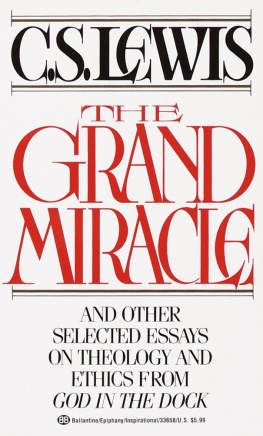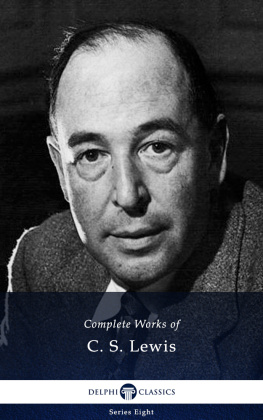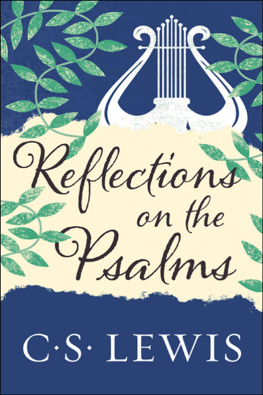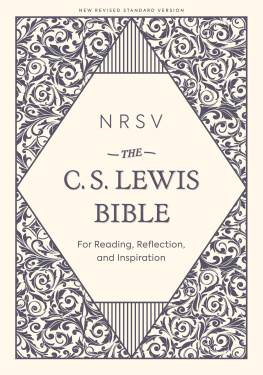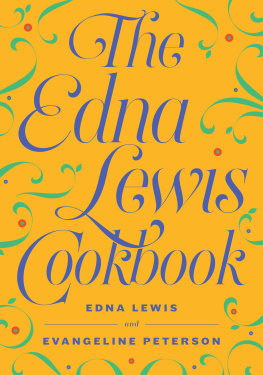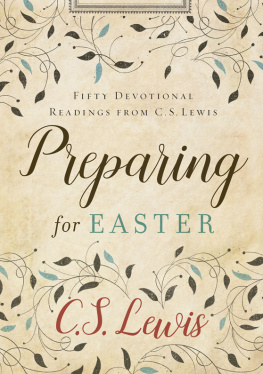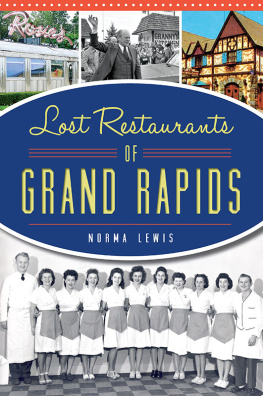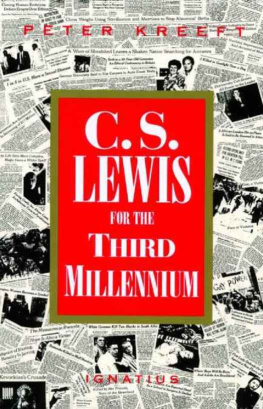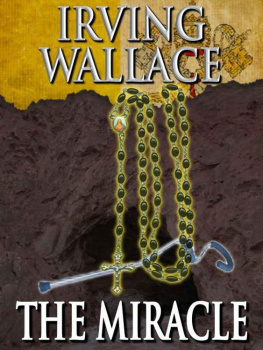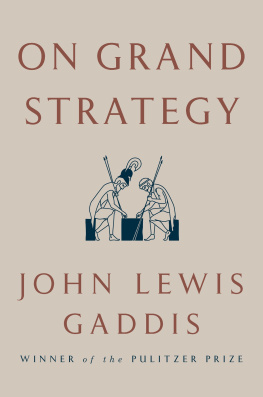C. S. Lewis - Grand Miracle
Here you can read online C. S. Lewis - Grand Miracle full text of the book (entire story) in english for free. Download pdf and epub, get meaning, cover and reviews about this ebook. year: 1983, publisher: Ballantine Books Inc., genre: Religion. Description of the work, (preface) as well as reviews are available. Best literature library LitArk.com created for fans of good reading and offers a wide selection of genres:
Romance novel
Science fiction
Adventure
Detective
Science
History
Home and family
Prose
Art
Politics
Computer
Non-fiction
Religion
Business
Children
Humor
Choose a favorite category and find really read worthwhile books. Enjoy immersion in the world of imagination, feel the emotions of the characters or learn something new for yourself, make an fascinating discovery.
Grand Miracle: summary, description and annotation
We offer to read an annotation, description, summary or preface (depends on what the author of the book "Grand Miracle" wrote himself). If you haven't found the necessary information about the book — write in the comments, we will try to find it.
Grand Miracle — read online for free the complete book (whole text) full work
Below is the text of the book, divided by pages. System saving the place of the last page read, allows you to conveniently read the book "Grand Miracle" online for free, without having to search again every time where you left off. Put a bookmark, and you can go to the page where you finished reading at any time.
Font size:
Interval:
Bookmark:

Loving praise for
C. S. LEWIS
We owed each a great debt to the other, and that tie with the deep affection it begot, remains. He was a great man.
J. R. R. Tolkien
Lewis struck me as the most thoroughly converted man I ever met. Christianity was never for him a separate department of life His whole vision of life was such that the natural and the supernatural seemed inseparably combined.
Walter Hooper
BALLANTINE BOOKS NEW YORK
Copyright (c) 1970 by The Trustees of the Estate of C. S. Lewis
All rights reserved. Published in the United States by Ballantine Books, a division of Random House, Inc., New York, and simultaneously in Canada by Random House of Canada, Limited, Toronto, Canada.
Library of Congress Catalog Card Number 70-129851 ISBN 0-345-33658-5
This edition published by arrangement with William B. Eerdmans Publishing Company
Manufactured in the United States of America
First Ballantine Books Edition: April 1983 Fifth Printing: July 1986
CONTENTS
1. Miracles
2. Dogma and the Universe
3. Answers to Questions on Christianity
4. Myth Became Fact
5. Horrid Red Things
6. Religion and Science
7. The Laws of Nature
8. The Grand Miracle
9. Christian Apologetics
10. Work and Prayer
11. Man or Rabbit?
12. Religion Without Dogma?
13. Some Thoughts
14. The Trouble with X
15. What Are We to Make of Jesus Christ?
16. Dangers of National Repentance
17. Two Ways with the Self
18. On the Reading of Old Books
19. Scraps
20. The Decline of Religion
21. Vivisection
22. Modern Translations of the Bible
23. God in the Dock
24. Cross-Examination
25. The Sermon and the Lunch
26. What Christmas Means to Me
I have known only one person in my life who claimed to have seen a ghost. It was a woman; and the interesting thing is that she disbelieved in the immortality of the soul before seeing the ghost and still disbelieves after having seen it. She thinks it was a hallucination. In other words, seeing is not believing. This is the first thing to get clear in talking about miracles. Whatever experiences we may have, we shall not regard them as miraculous if we already hold a philosophy which excludes the supernatural. Any event which is claimed as a miracle is, in the last resort, an experience received from the senses; and the senses are not infallible. We can always say we have been the victims of an illusion; if we disbelieve in the supernatural this is what we always shall say. Hence, whether miracles have really ceased or not, they would certainly appear to cease in Western Europe as materialism became the popular creed. For let us make no mistake. If the end of the world appeared in all the literal trappings of the Apocalypse,1 if the modern materialist saw with his own eyes the heavens rolled up2 and the great white throne appearing,3 if he had the sensation of being himself hurled into the Lake of Fire,4 he would continue forever, in that lake itself, to regard his experience as an illusion and to find the explanation of it in psychoanalysis, or cerebral pathology. Experience by itself proves nothing. If a man doubts whether he is dreaming or waking, no experiment can solve his doubt, since every experiment may itself be part of the dream. Experience proves
The book of Revelation.
nbid., vi. 14.
nbid., xx. 11.
*lbid., xix. 20; xx. 10; xx. 14-15; xxi. 8.
this, or that, or nothing, according to the preconceptions we bring to it.
This fact, that the interpretation of experiences depends on preconceptions, is often used as an argument against miracles. It is said that our ancestors, taking the supernatural for granted and greedy of wonders, read the miraculous into events that were really not miracles. And in a sense I grant it. That is to say, I think that just as our preconceptions would prevent us from apprehending miracles if they really occurred, so their preconceptions would lead them to imagine miracles even if they did not occur. In the same way, the doting man will think his wife faithful when she is not and the suspicious man will not think her faithful when she is: the question of her actual fidelity remains, meanwhile, to be settled, if at all, on other grounds. But there is one thing often said about our ancestors we must not say. We must not say They believed in miracles because they did not know the Laws of Nature. This is nonsense. When St. Joseph discovered that his bride was pregnant, he was minded to put her away.5 He knew enough biology for that. Otherwise, of course he would not have regarded pregnancy as a proof of infidelity. When he accepted the Christian explanation, he regarded it as a miracle precisely because he knew enough of the Laws of Nature to know that this was a suspension of them. When the disciples saw Christ walking on the water they were frightened:6 they would not have been frightened unless they had known the Laws of Nature and known that this was an exception. If a man had no conception of a regular order in Nature, then of course he could not notice departures from that order: just as a dunce who does not understand the normal meter of a poem is also unconscious of the poets variations from it. Nothing is wonderful except the abnormal and nothing is abnormal until we have grasped the norm. Complete ignorance of the Laws of Nature would preclude the perception of the miraculous just as rigidly as complete disbelief in the supernatural precludes it, perhaps even more so. For while the materialist would have at least to explain miracles away, the man wholly ignorant of Nature would simply not notice them.
The experience of a miracle in fact requires two conditions. First we must believe in a normal stability of Nature, which
Matthew i. 19.
Matthew xiv. 26; Mark vi. 49; John vi. 19
means we must recognize that the data offered by our senses recur in regular patterns. Secondly, we must believe in some reality beyond Nature. When both beliefs are held, and not till then, we can approach with an open mind the various reports which claim that this super- or extra-natural reality has sometimes invaded and disturbed the sensuous content of space and time which makes our natural world. The belief in such a supernatural reality itself can neither be proved nor disproved by experience. The arguments for its existence are metaphysical, and to me conclusive. They turn on the fact that even to think and act in the natural world we have to assume something beyond it and even assume that we partly belong to that something. In order to think we must claim for our own reasoning a validity which is not credible if our own thought is merely a function of our brain, and our brains a by-product of irrational physical processes. In order to act, above the level of mere impulse, we must claim a similar validity for our judgments of good and evil. In both cases we get the same disquieting result. The concept of Nature itself is one we have reached only tacitly by claiming a sort of super-natural status for ourselves.
If we frankly accept this position and then turn to the evidence, we find, of course, that accounts of the supernatural meet us on every side. History is full of them-often in the same documents which we accept wherever they do not report miracles. Respectable missionaries report them not infrequently. The whole Church of Rome claims their continued occurrence. Intimate conversation elicits from almost every acquaintance at least one episode in his life which is what he would call queer or rum. No doubt most stories of miracles are unreliable; but then, as anyone can see by reading the papers, so are most stories of all events. Each story must be taken on its merits: what one must not do is to rule out the supernatural as the one impossible explanation. Thus you may disbelieve in the Mons Angels7 because you cannot find a sufficient number of sensible people who say they saw them. But if you found a sufficient number, it would, in my view, be unreasonable to explain this by collective hallucination. For
Font size:
Interval:
Bookmark:
Similar books «Grand Miracle»
Look at similar books to Grand Miracle. We have selected literature similar in name and meaning in the hope of providing readers with more options to find new, interesting, not yet read works.
Discussion, reviews of the book Grand Miracle and just readers' own opinions. Leave your comments, write what you think about the work, its meaning or the main characters. Specify what exactly you liked and what you didn't like, and why you think so.

